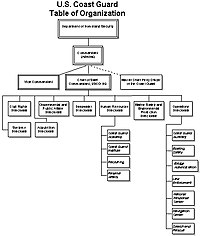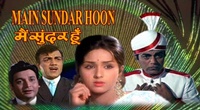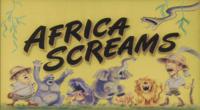
Management (or managing) is the administration of an organization, whether it is a business, a not-for-profit organization, or government body. Management includes the activities of setting the strategy of an organization and coordinating the efforts of its employees (or of volunteers) to accomplish its objectives through the application of available resources, such as financial, natural, technological, and human resources. The term "management" may also refer to those people who manage an organization.
Social scientists study management as an academic discipline, investigating areas such as social organization and organizational leadership. Some people study management at colleges or universities; major degrees in management include the Bachelor of Commerce (B.Com.) and Master of Business Administration (MBA.) and, for the public sector, the Master of Public Administration (MPA) degree. Individuals who aim to become management specialists or experts, management researchers, or professors may complete the Doctor of Management (DM), the Doctor of Business Administration (DBA), or the PhD in Business Administration or Management.
Larger organizations generally have three levels of managers, which are typically organized in a hierarchical, pyramid structure:
- Senior managers, such as members of a Board of Directors and a Chief Executive Officer (CEO) or a President of an organization. They set the strategic goals of the organization and make decisions on how the overall organization will operate. Senior managers are generally executive-level professionals, and provide direction to middle management who directly or indirectly report to them.
- Middle managers, examples of which would include branch managers, regional managers, department managers and section managers, provide direction to front-line managers. Middle managers communicate the strategic goals of senior management to the front-line managers.
- Lower managers, such as supervisors and front-line team leaders, oversee the work of regular employees (or volunteers, in some voluntary organizations) and provide direction on their work.
In smaller organizations, an individual manager may have a much wider scope. A single manager may perform several roles or even all of the roles commonly observed in a large organization.
Contents
Definitions
Views on the definition and scope of management include:
- According to Henri Fayol, "to manage is to forecast and to plan, to organise, to command, to co-ordinate and to control."
- Fredmund Malik defines it as "the transformation of resources into utility."
- Management included as one of the factors of production – along with machines, materials and money.
- Ghislain Deslandes defines it as “a vulnerable force, under pressure to achieve results and endowed with the triple power of constraint, imitation and imagination, operating on subjective, interpersonal, institutional and environmental levels”.
- Peter Drucker (1909–2005) saw the basic task of management as twofold: marketing and innovation. Nevertheless, innovation is also linked to marketing (product innovation is a central strategic marketing issue). Peter Drucker identifies marketing as a key essence for business success, but management and marketing are generally understood as two different branches of business administration knowledge.
Theoretical scope
Management involves identifying the mission, objective, procedures, rules and manipulation of the human capital of an enterprise to contribute to the success of the enterprise. This implies effective communication: an enterprise environment (as opposed to a physical or mechanical mechanism) implies human motivation and implies some sort of successful progress or system outcome. As such, management is not the manipulation of a mechanism (machine or automated program), not the herding of animals, and can occur either in a legal or in an illegal enterprise or environment. From an individual's perspective, management does not need to be seen solely from an enterprise point of view, because management is an essential function to improve one's life and relationships. Management is therefore everywhere and it has a wider range of application. Based on this, management must have humans. Communication and a positive endeavor are two main aspects of it either through enterprise or independent pursuit. Plans, measurements, motivational psychological tools, goals, and economic measures (profit, etc.) may or may not be necessary components for there to be management. At first, one views management functionally, such as measuring quantity, adjusting plans, meeting goals. This applies even in situations where planning does not take place. From this perspective, Henri Fayol (1841–1925) considers management to consist of six functions:
In another way of thinking, Mary Parker Follett (1868–1933), allegedly defined management as "the art of getting things done through people". She described management as philosophy.
Critics, however, find this definition useful but far too narrow. The phrase "management is what managers do" occurs widely, suggesting the difficulty of defining management without circularity, the shifting nature of definitions and the connection of managerial practices with the existence of a managerial cadre or of a class.
One habit of thought regards management as equivalent to "business administration" and thus excludes management in places outside commerce, as for example in charities and in the public sector. More broadly, every organization must "manage" its work, people, processes, technology, etc. to maximize effectiveness. Nonetheless, many people refer to university departments that teach management as "business schools". Some such institutions (such as the Harvard Business School) use that name, while others (such as the Yale School of Management) employ the broader term "management".
English-speakers may also use the term "management" or "the management" as a collective word describing the managers of an organization, for example of a corporation. Historically this use of the term often contrasted with the term "labor" – referring to those being managed.
But in the present era the concept of management is identified in the wide areas and its frontiers have been pushed to a broader range. Apart from profitable organizations even non-profitable organizations (NGOs) apply management concepts. The concept and its uses are not constrained. Management on the whole is the process of planning, organizing, coordinating, leading and controlling.
Nature of work
In profitable organizations, management's primary function is the satisfaction of a range of stakeholders. This typically involves making a profit (for the shareholders), creating valued products at a reasonable cost (for customers), and providing great employment opportunities for employees. In nonprofit management, add the importance of keeping the faith of donors. In most models of management and governance, shareholders vote for the board of directors, and the board then hires senior management. Some organizations have experimented with other methods (such as employee-voting models) of selecting or reviewing managers, but this is rare.
History
Some see management (by definition) as a late-modern (in the sense of late modernity) conceptualization. On those terms it cannot have a pre-modern history - only harbingers (such as stewards). Others, however, detect management-like thought among ancient Sumerian traders and the builders of the pyramids of ancient Egypt. Slave-owners through the centuries faced the problems of exploiting/motivating a dependent but sometimes unenthusiastic or recalcitrant workforce, but many pre-industrial enterprises, given their small scale, did not feel compelled to face the issues of management systematically. However, innovations such as the spread of Hindu numerals (5th to 15th centuries) and the codification of double-entry book-keeping (1494) provided tools for management assessment, planning and control.
Machiavelli wrote about how to make organisations efficient and effective. The principles that Machiavelli set forth in Discourses (1531) can apply in adapted form to the management of organisations today:
- An organisation is more stable if members have the right to express their differences and solve their conflicts within it.
- While one person can begin an organisation, "it is lasting when it is left in the care of many and when many desire to maintain it".
- A weak manager can follow a strong one, but not another weak one, and maintain authority.
- A manager seeking to change an established organization "should retain at least a shadow of the ancient customs".
With the changing workplaces of industrial revolutions in the 18th and 19th centuries, military theory and practice contributed approaches to managing the newly-popular factories.
Given the scale of most commercial operations and the lack of mechanized record-keeping and recording before the industrial revolution, it made sense for most owners of enterprises in those times to carry out management functions by and for themselves. But with growing size and complexity of organizations, a distinction between owners (individuals, industrial dynasties or groups of shareholders) and day-to-day managers (independent specialists in planning and control) gradually became more common.
Etymology
The English verb "manage" comes from the Italian maneggiare (to handle, especially tools or a horse), which derives from the two Latin words manus (hand) and agere (to act). The French word for housekeeping, ménagerie, derived from ménager ("to keep house"; compare ménage for "household"), also encompasses taking care of domestic animals. Ménagerie is the French translation of Xenophon's famous book Oeconomicus (Greek: ???????????) on household matters and husbandry. The French word mesnagement (or ménagement) influenced the semantic development of the English word management in the 17th and 18th centuries.
Early writing
Management (according to some definitions) has existed for millennia, and several writers have produced background works that have contributed to modern management theories.[need quotation to verify] Some theorists have cited ancient military texts as providing lessons for civilian managers. For example, Chinese general Sun Tzu in his 6th-century BC work The Art of War recommends[citation needed] (when re-phrased in modern terminology) being aware of and acting on strengths and weaknesses of both a manager's organization and a foe's.[14][need quotation to verify] The writings of influential Chinese Legalist philosopher Shen Buhai may be considered[by whom?] to embody a rare premodern example of abstract theory of administration.[15]
Various ancient and medieval civilizations produced "mirrors for princes" books, which aimed to advise new monarchs on how to govern. Plato described job specialization in 350 BC, and Alfarabi listed several leadership traits in AD 900.[16] Other examples include the Indian Arthashastra by Chanakya (written around 300 BC), and The Prince by Italian author Niccolò Machiavelli (c. 1515).[17]
Written in 1776 by Adam Smith, a Scottish moral philosopher, The Wealth of Nations discussed efficient organization of work through division of labour.[17] Smith described how changes in processes could boost productivity in the manufacture of pins. While individuals could produce 200 pins per day, Smith analyzed the steps involved in manufacture and, with 10 specialists, enabled production of 48,000 pins per day.[17][need quotation to verify]
19th century
Classical economists such as Adam Smith (1723–1790) and John Stuart Mill (1806–1873) provided a theoretical background to resource-allocation, production, and pricing issues. About the same time, innovators like Eli Whitney (1765–1825), James Watt (1736–1819), and Matthew Boulton (1728–1809) developed elements of technical production such as standardization, quality-control procedures, cost-accounting, interchangeability of parts, and work-planning. Many of these aspects of management existed in the pre-1861 slave-based sector of the US economy. That environment saw 4 million people, as the contemporary usages had it, "managed" in profitable quasi-mass production.
Salaried managers as an identifiable group first became prominent in the late 19th century.[18]
20th century
By about 1900 one finds managers trying to place their theories on what they regarded as a thoroughly scientific basis (see scientism for perceived limitations of this belief). Examples include Henry R. Towne's Science of management in the 1890s, Frederick Winslow Taylor's The Principles of Scientific Management (1911), Lillian Gilbreth's Psychology of Management (1914),[19] Frank and Lillian Gilbreth's Applied motion study (1917), and Henry L. Gantt's charts (1910s). J. Duncan wrote the first college management-textbook in 1911. In 1912 Yoichi Ueno introduced Taylorism to Japan and became the first management con
Watch movie Manager online on Amazon
Watch movie Manager online
Watch The Movie On PrimeChampion Full HD Movie Download

Main Sunder Hoon Full HD Movie Download

Lahu Ke Do Rang Full HD Movie Download

Sapoot Full HD Movie Download

Saheb Bahadur Full HD Movie Download

Love Dot Com Full HD Movie Download

Asa Mi Tasa Mi Full HD Movie Download

Samantar Full HD Movie Download

Mitti Wajaan Maardi Full HD Movie Download

Sagai (1951) Full HD Movie Download
.jpg)
Nyayam Meere Cheppali Full HD Movie Download

Evadra Rowdy Full HD Movie Download

Maher Majhe He Pandharpur Full HD Movie Download

Africa Screams Full HD Movie Download

Thaskara Lahala Full HD Movie Download

Anbai Theadi Full HD Movie Download

Deham Full HD Movie Download

Pasupu Thadu Full HD Movie Download

Chitti Chellelu Full HD Movie Download

Ayaash Full HD Movie Download

Vijay Full HD Movie Download

Download latest Movie from bollywood
- 1> baaghi 3
- 2> THE SKY IS PINK MOVIE FULL STORY AND REVIEW
- 3> Luka Chuppi
- 4> TO ALL THE BOYS I’VE LOVED BEFORE
- 5> Kabir Singh
- 6> Street Dancer 3D
- 7> Simmba
- 8> Gone Girl
- 9> The Girl Who Lived
- 10> Ludo
- 11> DILWALE DULHANIA LE JAYENGE
- 12> GUILTY
- 13> The Godfather
- 14> Adventures of Rusty
- 15> Sooryavanshi
- 16> Satyameva Jayate 2
- 17> Thappad
- 18> Bhool Bhulaiyaa 2
- 19> KGFChapter 2
- 20> Mardaani 2
- 21> Pinjar
- 22> Shivaji maharaj
- 23> Ek Villian 2
- 24> Hungama 2
- 25> Divergent
- 26> Mumbai Saga
- 27> The Internship
- 28> HIT (telugu)
- 29> Panga
- 30> The perfect date
- 31> 16 December
- 32> Gopala Gopala (Telugu)
- 33> Brahmastra
- 34> Gangubai Kathiawadi
- 35> Manmadhudu
- 36> Nenu local
- 37> Mahanati
- 38> Shatamanam bavathi
- 39> Lagaan
- 40> After
- 41> MOM
- 42> Shamshera
- 43> Raguvaran BTech
- 44> Khakee
- 45> The villain
- 46> OM
- 47> Mr. perfect
- 48> Bueatifull mind
- 49> Hichki
- 50> Gabbar Singh
- 51> Jogi
- 52> Before Sunrise
- 53> Before Sunset
- 54> Before Midnight
- 55> The Big Bull
- 56> Top Gun: Maverick
- 57> The Purge
- 58> The Sky is Pink
- 59> Laxmmi Bomb
- 60> Sadak 2
- 61> Sufna
- 62> Prithviraj
- 63> PK
- 64> Coolie No 1(2020)
- 65> Black Widow
- 66> Dear Zindagi
- 67> Dil Bechara
- 68> PHIR HERA PHERI
- 69> WAR
- 70> Dostana
- 71> RRR: Roudram Ranam Rudhiram
- 72> Maidan
- 73> Dabbang 3
- 74> Chhalaang
- 75> life as we know it
- 76> SherShaah
- 77> Sandeep Aur Pinky Faraar
- 78> Event Horizon
- 79> 83
- 80> Radhe: Your Most Wanted Bhai
- 81> Gunjan Saxena: The Kargil Girl
- 82> Mr India
- 83> Vivah
- 84> Anokha Bandhan
- 85> Ghost
- 86> Bhoot: Part One - The Haunted Ship
- 87> Haseen Dilruba
- 88> Laal Singh Chaddha
- 89> Qismat
- 90> Rajput
- 91> Drive
- 92> Dil Chahta Hai
- 93> Dil Ki Baazi
- 94> Dil Ka Rishta
- 95> Teesri Manzil
- 96> Dil
- 97> Love Aaj Kal
- 98> Khaali Peeli
- 99> Bunty Aur Babli 2
- 100> Atrangi Re
- 101> Gulabo Sitabo
- 102> Jodi
- 103> Suraj Pe Mangal Bhari
- 104> Deewana
- 105> Attack
- 106> Sardar Udham Singh
- 107> Toofan
- 108> THE LOVEBIRDS
- 109> Jersey
- 110> Ginny Weds Sunny
- 111> Thalaivi
- 112> Shiddat
- 113> Angels vs Zombies
- 114> Koi Mil Gya
- 115> Thank God
- 116> Bhuj: The Pride of India
- 117> Hum Aapke Hain Kaun
- 118> The Platform
- 119> Bird Box
- 120> Roohi Afzana
- 121> Torbaaz
- 122> Nikamma
- 123> World War Z
- 124> Extraction
- 125> Train to Busan
- 126> Life of Pi
- 127> SHAADI MEIN JROOR AANA
- 128> Himmat Aur Mehnat
- 129> To All The Boys: P.S. I Still Love You
- 130> Mimi
- 131> Good Newwz
- 132> Shubh Mangal Zyada Saavdhan
- 133> Raabta
- 134> Harry Potter and the Philosopher's Stone
- 135> Harry Potter and the Chamber of Secrets
- 136> Chhapaak
- 137> War of the Worlds
- 138> Harry Potter and the Prisoner of Azkaban
- 139> Harry Potter and the Goblet of Fire
- 140> MURDER MYSTERY
- 141> Shakuntala Devi
- 142> Bachchan Pandey
- 143> Jayeshbhai Jordar
- 144> Sheer Qorma
- 145> Saina
- 146> 'O' Pushpa I hate tears
- 147> Kedarnath
- 148> MS Dhoni The Untold Story
- 149> Chhichhore
- 150> Badhaai Ho
- 151> Unstoppable
- 152> Oz the Great And Powerful
- 153> The Girl on the Train
- 154> Haathi Mere Saathi 2020
- 155> The Conjuring: The Devil Made Me Do It
- 156> Gandhi Se Pehle Gandhi
- 157> The Song of Scorpions
- 158> Srimanthudu
- 159> Hello Guru Prema Kosame
- 160> Beauty and The Beast
- 161> Black Panther
- 162> Charlie and the Chocolate Factory
- 163> Bole Chudiyan
- 164> Fidaa
- 165> Duvvada Jagannadham
- 166> Bruce Lee: The Fighter
- 167> Hyper
- 168> Yaara
- 169> Red (2020)
- 170> Shivam
- 171> That Is Mahalakshmi
- 172> Nishabdham
- 173> Aashram 2020 web series
- 174> Laxmii
- 175> Mismatched
- 176> STUDENT OF THE YEAR 2
- 177> NAIL POLISH
- 178> Ramprasad Ki Tehrvi
- 179> KAAGAZ
- 180> 12 o Clock
- 181> The Power
- 182> bolo hau
- 183> Tribhanga
- 184> JAMUN
- 185> Madam Chief Minister
- 186> Maasaab
- 187> Aadhaar
- 188> Tanhaji
- 189> Bhaagi 3
- 190> Bhootnath
- 191> MALANG
- 192> Jai Mummy Di
- 193> Haathi Mere Saathi 2021
- 194> Shakeela
- 195> Unpaused
- 196> Annayya
- 197> Vamsoddharakudu
- 198> Mrugaraju
- 199> Narasimha Naidu
- 200> Sankranti
- 201> Manasu Maata Vinadhu
- 202> Anjaane
- 203> Apaharan
- 204> Bachke Rehna Re Baba
- 205> Bewafaa
- 206> Roohi
- 207> Radhe
- 208> Zindagi Khoobsoorat Hai
- 209> Yeh Mohabbat Hai
- 210> Yeh Kya Ho Raha Hai?
- 211> The Tomorrow War
- 212> DehradunDiary
- 213> Meri Shaadi Karaoo
- 214> Matruu Ki Bijlee Ka Mandola
- 215> No One Killed Jesica
- 216> Aag Ka Goola
- 217> Eight Million Dollars
- 218> Three Hundred
- 219> Cats and Dog
- 220> Decoy
- 221> Gold Rush
- 222> You Have Got Mail
- 223> Final Destination three
- 224> Tofan
- 225> Jungle
